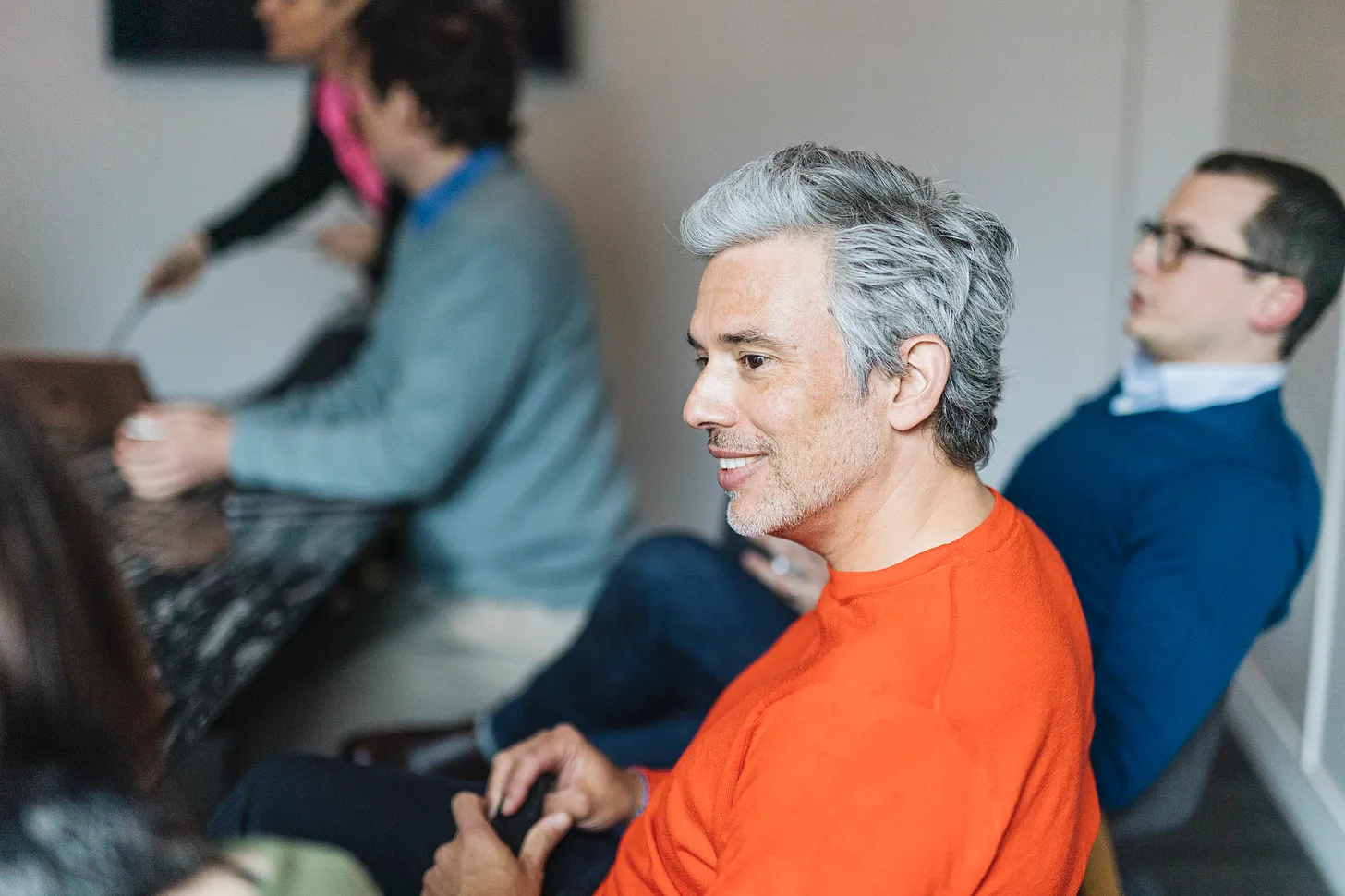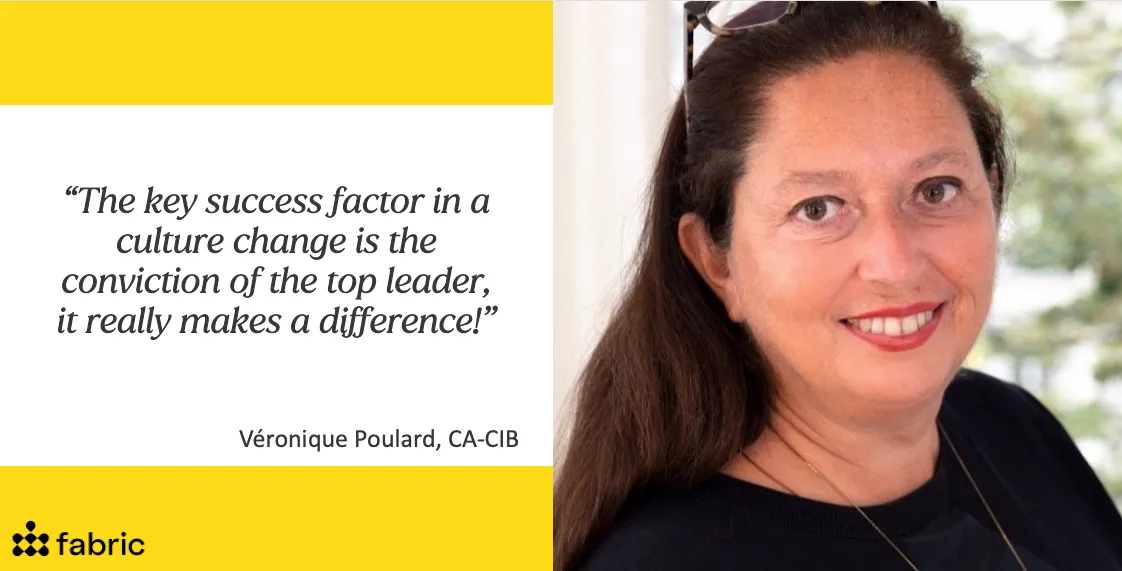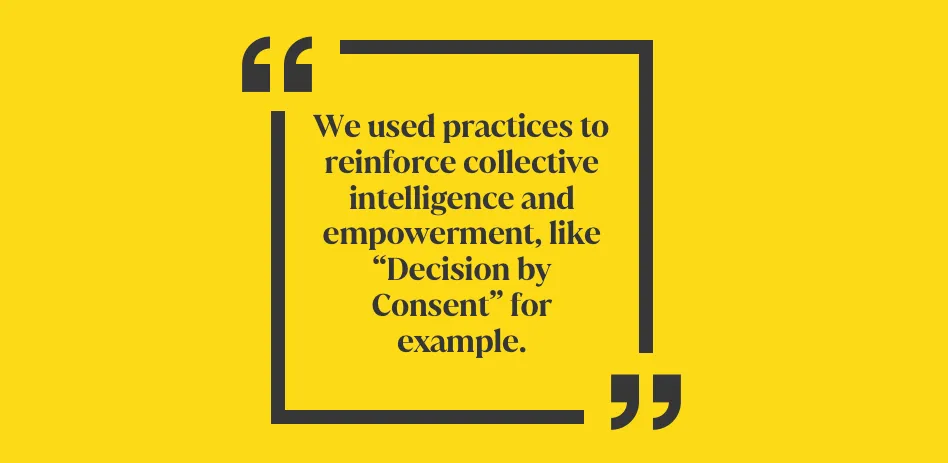Fabric held an online conference on February 7th dedicated to 2023 organizational trends. But if you missed it, here are the key points that were discussed!
Is this the year that sustainable development is gonna be a success?
Sustainable development is a topic widely discussed for nearly 40 years now (think about the “Our Common Future” report from the UN published in… 1987!), however it’s clear the real shift in the way companies operate has yet to happen. Will 2023 be the year it does after so many false starts?

Axel Zimmer, partner at Fabric, shares hints that we may see a needed change. Projections show the ESG share of publicly traded stocks will reach a all-time-high of 50%. Furthermore 75% of the world largest GHG emitters have set a net zero goal by 2050 – and it’s starting to show in their current strategy, because companies will then need to rethink their whole organizational culture and mindset to reach such a goal. An example of this shift happening is the number of B Corp certified companies that went from under 200 in 2007 to a staggering 6150 in 2022.
Why are we still working?
Companies need not only to care about their impact on the world, but also about the impact on the people working for them. The question of the place of work in our life is more than ever present. Workers are looking for a balance between the need to make a living, the need for self-actualization and the need to contribute to the world in a positive manner, explained Chloe Grabli, partner at Fabric. For example, French students from top-school Agro Paris Tech protested during their 2022 graduation by stating that “they don’t want to work for corporations who are destroying the planet”.

At the same time, workers are also growing tired of so-called “compensation” like table football in break areas and are asking for better salaries, especially in a context of inflation and rising cost-of-living. Moreover people are looking to spend less time working and focus on other occupations outside of the workplace, like the growing number of 4-day work week laws and experiments all over Europe and America shows.
What culture change is needed?
To face such complex challenges and embrace the need to integrate so many stakeholders, leaders need to adjust their awareness and leadership style. “There is a shift from a culture of separation to a culture of interdependency”, detailed Fabric’s partner Mickael Drouard. We are in critical need of a culture capable of addressing the systemic challenges (economic and energy crisis, Covid crisis, environment crisis…) and a high level of complexity.

To do so, organizations need new effective tools and languages based on collective intelligence – and that’s what Fabric’s goal is!
CA-CIB: how to shift culture towards empowerment?
Véronique Poulard, Head of Empowerment & Accountability Program at CA-CIB (Crédit agricole Corporate and Investment Bank), has developed a program aiming at changing the culture to make the company ready for those new challenges.

CA-CIB is a corporate investment bank with 9000 employees across the world. The culture is expertise-based, “money driven” and benefits from a high level of engagement from collaborators.
How did this culture shift start?
The need for more empowerment comes from Crédit Agricole’s CEO Philippe Brassac himself! As head of the group, he had the intuition that beyond the digital transformation, CA-CIB needed to have a strong focus on culture and the “human project”, and to move from a traditional “Taylor-inherited” hierarchical culture to more empowerment and trust. This intuition has been translated into two main goals:
- Each team member needs to “dare in discernment”
- CACIB needs to strengthen their collective intelligence
What were the key guidelines?
Véronique Poulard knew that in order for such a change to be successful, the teams would require tools and a collective organization with well defined roles. Building on the current context , five principles were drawn:
1. This culture change is business driven and the top management needs to understand that it is the only condition for change to be possible.
2. There are already many “manager programs”, so it has to be clear this empowerment approach focuses on all the levels, not only managers!
3. Teams need to develop their collective intelligence: they need to develop rituals, to strengthen team spirit, to have better meetings.
4. The program is based on volunteerism: the program is only supporting managers and teams who want to go through this journey.
5. The business is already very tough, so it’s very important as a mindset to acknowledge teams have strengths already, and to be able to build on them.
What was in the program?
CA-CIB set up a specific program to accompany teams leaders and the teams to teach them practices that are considered helpful to reinforce collective intelligence and empowerment, like “Decision by Consent” for example. In order to anchor those new practices in a sustainable way, relays are needed within the organization. That’s why internal facilitators were chosen and trained within the teams.

First, there is an “Impulse phase” that lasts 4 months: that’s the time required for people to be sufficiently skilled to move to another step. Then there is a “Scale up phase” with managers’ workshops on delegation or coaching. “At the end of this phase, we asked managers who were not volunteers yet to join the program”, explained Véronique Poulard “and since there was some momentum, it worked!”.
What are the key success factors?
As of early 2023, 600 managers and 60 teams have been involved in the program, that’s more than 10 business lines embarked! The feedback is very encouraging with employees saying that “there is really a before and an after, because we interact in a different way and it helps a lot”.
The key success factor is the conviction of the top leader, it really makes a difference – and the second big thing is the relevancy to the business. People are very busy, so the value the program can bring must be cristal clear. Véronique Poulard also reminded us that it’s important to listen to the teams, because the more you understand, the better you will be to embark people. Program leaders have to find a balance between belief and feedback from people on the ground.
Thanks again to Véronique Poulard for sharing her insights on culture change with us! You can watch a replay of this conference on Fabric’s Youtube channel:
If your company is planning a culture change towards collective intelligence and empowerment, and you think Fabric would be a good fit to support you in this journey, please contact us!

I am contributing to generate a future of work desirable for people, organisations and society. I include diversity and connect polarities that are too often split apart : science & humanity, freedom & constrains, profit & ethics, local & global, preservation & creativity, digital & human.
Chloé Grabli
Partner
Learn more on Linkedin
